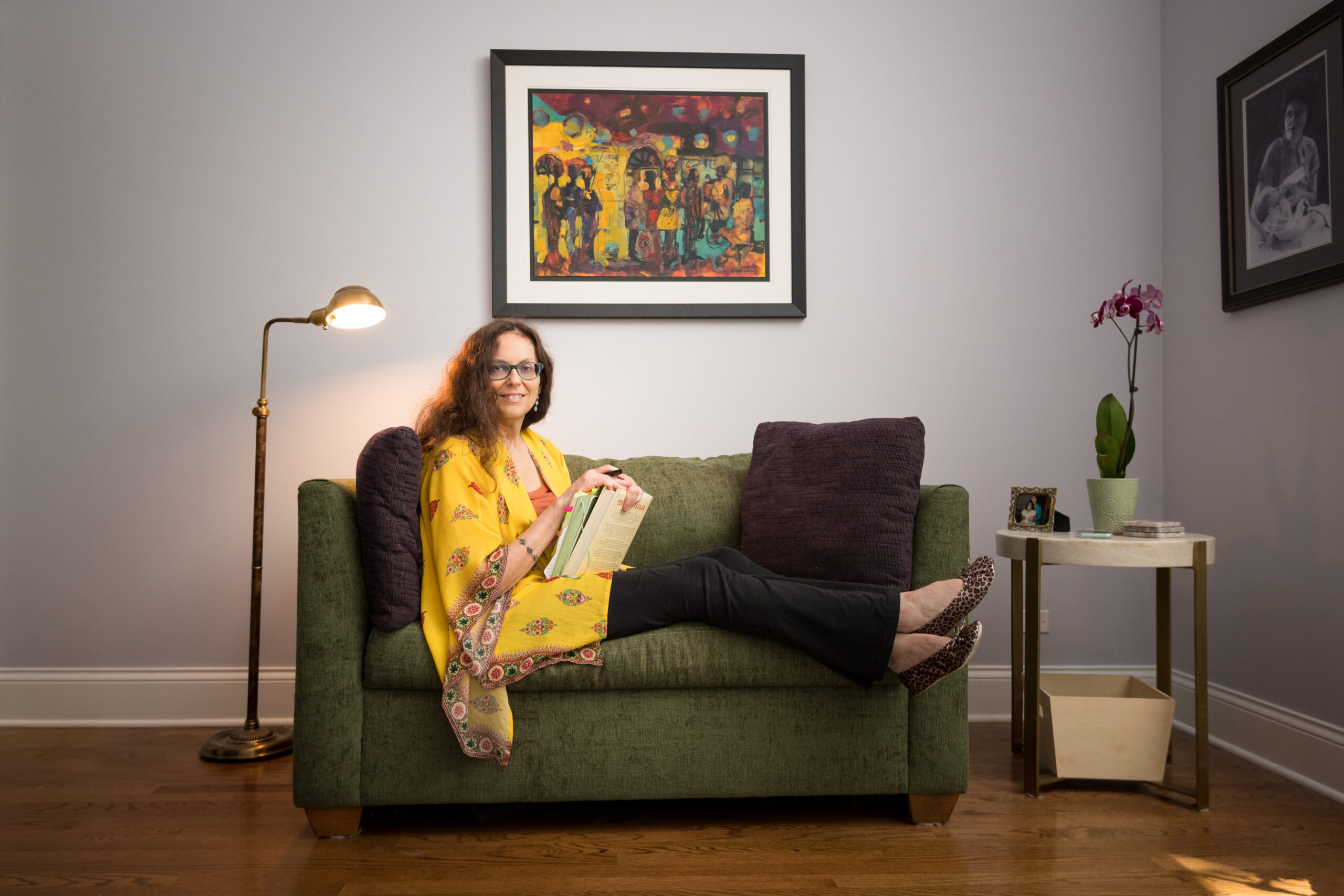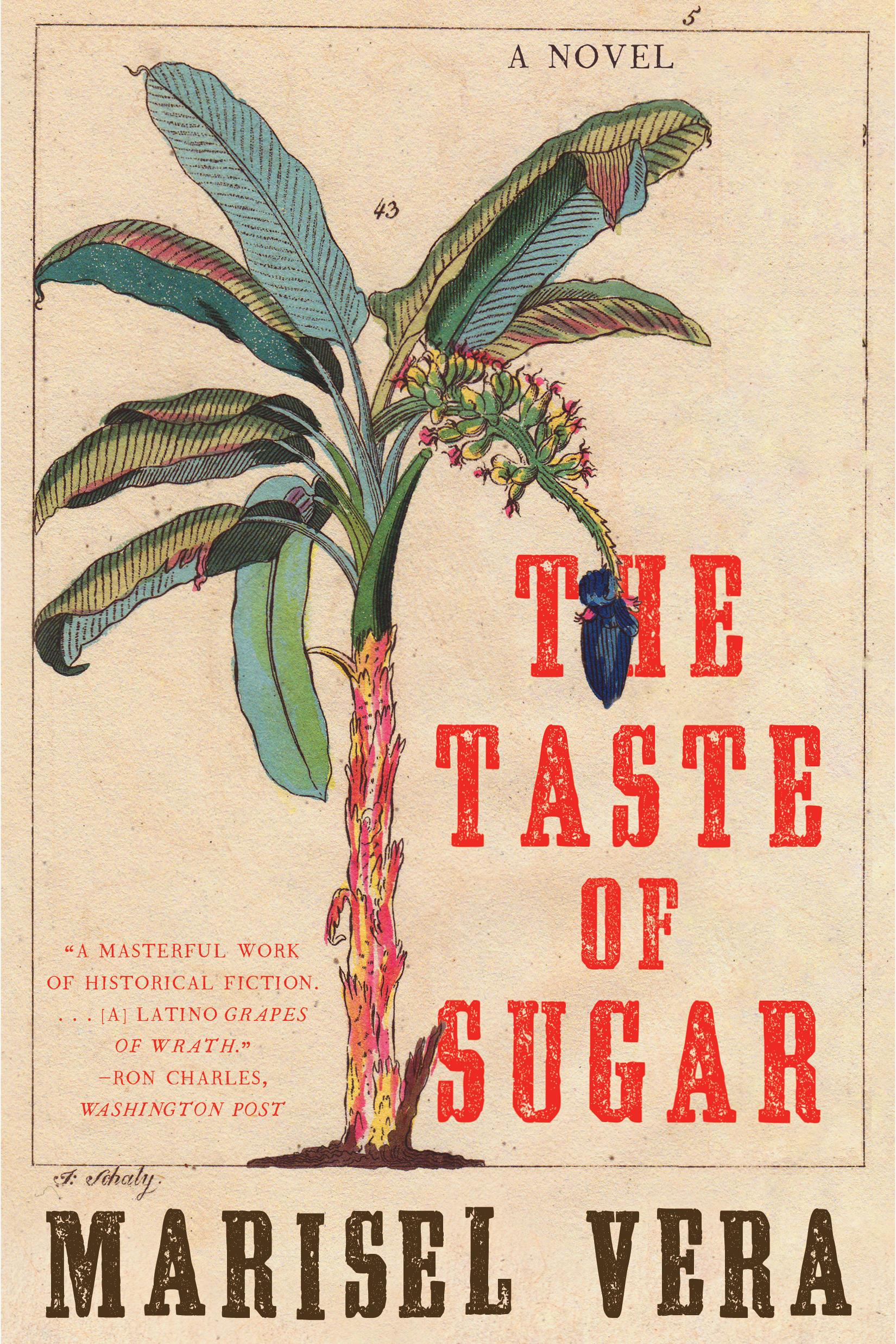
How Author Marisel Vera Uses Historical Fiction To Educate Readers On Puerto Rico’s Colonial History
There’s power in bringing the past to life—and Chicago-based Puerto Rican novelist Marisel Vera is a master at guiding readers through time travel. With historical fiction, the author brings little-known facts and dates to life through the stories, struggles, joys and love of ordinary people living in extraordinary times. As someone who rarely saw herself in textbooks or novels, Vera has made it a point to center Puerto Rican stories in her writing. “I see it as a gift to Puerto Ricans who don’t know their history. It helps so much to know where you come from and to be grounded in your presence,” she tells FIERCE.
While writing her first novel—If I Bring You Roses, about a Puerto Rican couple who moved to Chicago during Operation Bootstrap—Vera read a shocking stat: Between 1900 and 1903, 5,000 Puerto Ricans migrated to Hawaii to work in the sugar plantations.
She knew then it would be the topic of her next book. The Taste of Sugar tells the fictional story of a coffee-growing couple, Valentina Sanchez and Vicente Vega, to explore the real-life social, economic and political conditions that prompted thousands of Puerto Ricans to voyage to Hawaii. “As a novelist, if I’m going to write about this period, then I have to figure out what was happening in Puerto Rico for thousands of people to want to leave the island, especially during a period before plane travel. Research informs all of my work,” she says. Through the novel, readers watch those factual events—Spanish colonialism, the invasion and occupation of the United States, and the devastating Hurricane San Ciriaco—unfold, and witness a family who lost everything leave home to rebuild their lives on a foreign plantation where oppression merely has a different flavor.
We chatted with Vera about the role historical fiction plays for marginalized communities who don’t know their history, what she has learned in her years researching and writing about Puerto Rico’s past, and how these former days inform the struggles the archipelago currently faces.

What was the most striking thing you learned while doing research for this novel?
There were so many! One of the things I learned, and I got it from a Spanish-language nonfiction book by a Puerto Rican historian, is that people were really poor in Puerto Rico even before the Americans arrived. People were starving. I thought it was necessary to talk about Spanish colonialism. I also learned that when the island got autonomy from Spain, right before the Spanish-American War, the Spaniards stopped giving Puerto Rico money for anything, so there wasn’t money for trash, charity or anything. On the U.S. side, I learned that right before the Spanish-American War, like a year or two earlier, the U.S. sent a scout to Puerto Rico to check out the land. He pretended to be a tourist, but he was creating a map and planning a strategy for invasion. Around the same time, there was another map of Puerto Rico that was split up into Protestant religions, the big ones in the U.S. like Presbyterian, Lutheran and such; each denomination had a section on the map. It was shocking to see, but this is part of colonialism everywhere. Colonialism includes going into a country and imposing your religion. It was interesting to learn these kinds of things.
Was there something you learned about yourself in the process?
When I was writing this book, I was terrified because I realized I had a huge goal with this world I wanted to create, and I didn’t know if I was capable of doing it. It seemed so ambitious. Then I thought, well, I felt the same way with my first novel, but I did it. This reminded me that I just need to take writing step by step, but it also made me realize that this is something I feel all the time. I’m always wondering: am I worthy of writing about this? Do I have the talent or the skill? Can I do it? I don’t know. But now I’ve done it twice. If it feels too difficult or I feel like I don’t know how to do it, I try to remind myself of this and it helps. I guess it’s part of being an artist. You doubt yourself, but you have to continue. I think I especially felt it while working on my second novel because the first novel didn’t do well, so I lost a lot of confidence in my talent and writing ability because I got minimal feedback. I honestly think it has a lot to do with being a Latina. I didn’t get a lot of marketing support from my first publisher.

I think that’s something a lot of Latina writers can relate to; I know I do. Both If I Bring You Roses and The Taste of Sugar deal with colonial-related exodus. Why are these themes that interest you and do you think they relate to the Puerto Rican struggle today?
All of them relate to colonialism because that’s the reason we are here in the United States: because of colonialism. All the same problems during the times of The Taste of Sugar are still the same problems now: infrastructure, education, poverty, colonialism and mass migration. And they’re going to still be the same if we continue to sell the land to white Americans. It’s the same story: there’s no work, so the impoverished Puerto Rican gets evicted and someone from the U.S. buys up.
In both of these novels, there are also complex women protagonists who struggle immensely but still have moments of joy, of laughter and of love. Why is it important to you as a writer to create these complicated female protagonists?
My daughter and I believe women are underrepresented in everything, so I’ve committed myself to always writing a woman character. If I can, I’ll include men, too. It was important in both novels to include the male perspective because of the patriarchy and because of how men and women, in the early period and in the ‘50s, were raised in Puerto Rico; I wanted to show that. I felt I could do that best by doing that in both the male and female voices.
My new novel is called The Girls from Humboldt Park, and it’s also very complex. It’s about four Puerto Rican girls growing up in the 1970s in Chicago. I think of them as mermaids, and I had to write myself a note that says: don’t cut off the mermaids’ tails. Their lives are so difficult and they have to put up with so much, so that note reminds me to make sure I find ways to bring them joy.

I learned so much through The Taste of Sugar. I have Puerto Rican family in Hawaii, and I was aware of mass migration to the islands. However, I didn’t know why Puerto Ricans migrated or what their experiences were like there. How can historical fiction also be an educational tool for people who don’t often learn about their history in school?
That’s what I was hoping for. If we don’t learn about it in school or from our ancestors, where will we learn about it? The government won’t tell us. But art can enlighten you. I’ve learned a lot about slavery in the United States mostly through novels. Things that I didn’t know and that I didn’t learn in school, I learn about through novels. That’s what I’m trying to do through my work: to educate and enlighten people through the stories of people. And that’s why I write novels instead of nonfiction. What appeals to me through novels is we could learn through one person or two people how others lived. People don’t care so much about the 5,000 Puerto Ricans who went to Hawaii, but when you talk about Valentina, Vicente and Raulito and what they had to go through, then they care. People can put themselves in one person’s shoes but not in a group.
I know you are working on a novel and play. What can you tell us about these projects?
I mentioned my next novel, The Girls from Humboldt Park. I can’t give too much away, but I can say it takes place in the 1970s, around the time of the Humboldt Park riot when police officers shot and killed two Puerto Rican men in front of their friends and family. I’m also working on a play with my daughter, who is going to direct it. It’s about population control in Puerto Rico, so we’re getting into sterilization and the pill in the ‘60s. It’s about both the Spanish and U.S. governments in Puerto Rico. The United States has tested population control policies in Puerto Rico, and then they went to other parts of the world to implement it. That’s what the play is about. It’s a very big subject, and it’s super hard to do in a play. I’m learning to be a playwright. I wrote a couple drafts, but it’s getting there.




